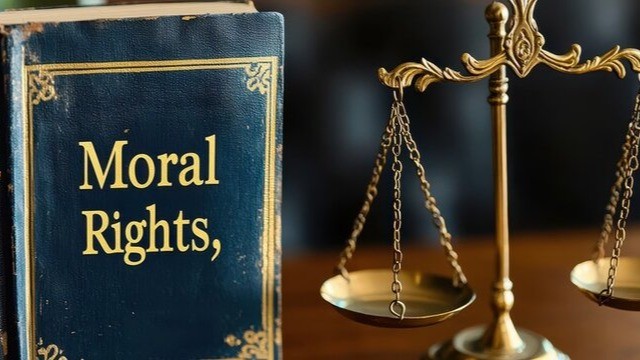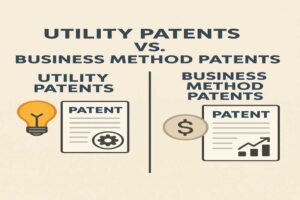The concept of “moral rights” in intellectual property law, especially in relation to songs, provides an essential layer of protection for creators, focusing not on financial aspects but on the connection between artists and their creations. Although often overshadowed by economic rights in discussions around copyright, moral rights address a fundamental aspect of authorship: the enduring link between creators and their work. While economic rights can be transferred, sold, or licensed, moral rights remain intrinsic to the author, safeguarding their personal and reputational relationship with the work. This article dives deep into the nuances of moral rights as they apply to songs, examining how they protect the integrity, attribution, and dignity of musical creators.
1. The Essence of Moral Rights in Music
At its core, a song is a blend of lyrics and melody, the product of one or multiple authors who pour their artistic vision and emotion into their creation. Moral rights, commonly recognized in civil law jurisdictions and to a lesser extent in common law jurisdictions, are crucial to ensuring that a song’s connection to its creator remains respected throughout the work’s existence.
These rights encompass the following primary areas:
- Right of Attribution: This right ensures that the creator’s name is always associated with their work. For songwriters, composers, and lyricists, it’s not merely about receiving credit; it’s about being acknowledged for their artistic contribution. Without attribution, the creator’s effort and creativity could be easily overshadowed or, worse, appropriated by others.
- Right to Integrity: This right protects the work from alterations, distortions, or uses that might damage its character or the artist’s reputation. For instance, a song might hold specific social, political, or emotional meaning that the creator wants to preserve. The right to integrity ensures that the work remains true to its original purpose, preventing its use in ways that contradict or misrepresent its essence.
- Right to Disclosure: Although not as universally recognized, some jurisdictions include the right to disclose, which allows authors to determine when or if their work will be made public. This is important in music, where creators may wish to maintain control over the timing and context of the song’s release.
- Right to Withdraw: In certain legal systems, creators are afforded the right to withdraw a work if it no longer aligns with their values or beliefs. This can be especially relevant in music, where public perception or changing times may affect how a song is interpreted.
2. Historical Background of Moral Rights in Music
The roots of moral rights can be traced back to 19th-century France, where the concept was developed to protect the relationship between authors and their works. French law established that creators had an unalienable bond with their creations—a perspective that still strongly influences moral rights doctrine in civil law countries. In music, this concept has helped many composers and songwriters safeguard their contributions from distortion and misuse. Over the years, moral rights expanded globally, with notable legal frameworks including the Berne Convention for the Protection of Literary and Artistic Works, which has been adopted by over 175 countries.
3. Moral Rights vs. Economic Rights: Key Differences
Unlike economic rights, which focus on the commercial exploitation of a song, moral rights are non-transferable and exist to protect the personal and reputational interests of the artist. For example, a songwriter can license their song to a record label, granting the label certain economic rights such as distribution, reproduction, and public performance. However, they retain the moral rights, meaning that even as the song is commercialized, the creator’s name must be attributed, and the work must not be altered without their consent.
In practice, these differences mean that:
- Economic Rights can be bought, sold, or licensed, making them a means to earn royalties and profit from a song.
- Moral Rights remain with the creator, regardless of who holds the economic rights, ensuring that the artist’s reputation and creative vision are preserved.
4. Right of Attribution: Recognition and Acknowledgment
The right of attribution is often considered the most fundamental moral right for musicians. It guarantees that the creator’s name accompanies the work wherever it is shared or performed. This attribution not only acknowledges the effort behind the creation but also builds the artist’s reputation, which is crucial for long-term career growth. In an era where digital platforms rapidly spread music globally, proper attribution has become even more critical.
Imagine a scenario where a well-known pop artist records a song written by an up-and-coming songwriter. While the artist’s name might be prominent in the release, the songwriter’s attribution is equally essential to ensure they receive recognition and potential career advancement. Failure to attribute a songwriter properly can lead to legal disputes and reputational damage, which is why many agreements explicitly mandate proper crediting in any public distribution of the song.
5. Right to Integrity: Protecting the Soul of the Song
The right to integrity safeguards a song from alterations that could compromise its essence. This right becomes especially relevant in cases of remixes, adaptations, or derivative works. While remixing and covering songs are common in the music industry, the creator retains the moral right to prevent any changes that could harm the song’s integrity.
For example, consider a song with political or social messages. If a version of the song were to change lyrics or visuals in a way that undermines the original message, the artist might feel that the core purpose of their creation has been compromised. In such cases, the creator’s right to integrity allows them to prevent the alteration or demand that their name is dissociated from it. This protection becomes vital for artists who view their music as a reflection of their identity, values, and beliefs.
6. Balancing Moral Rights in Collaboration and Commercialization
Music is a highly collaborative field, often involving multiple creators like composers, lyricists, and producers, each with their moral rights. Collaborative works require careful agreements to ensure that each creator’s moral rights are respected while still enabling commercialization. For instance, when a song is produced by a record label, the contributors must agree on how their moral rights will be upheld, even as economic rights may be shared or transferred.
To address this, many record labels and publishers include “waivers” of moral rights in contracts, allowing for certain alterations while still seeking consent from the creators. Such waivers are sometimes necessary for creating derivative works, but they must be balanced to avoid infringing on the creators’ moral rights to attribution and integrity.
7. Legal Recognition and Enforcement of Moral Rights in Music
Legal protection of moral rights varies significantly across jurisdictions. Countries like France, Germany, and Canada recognize moral rights robustly, including the right to integrity and attribution, and enforce these rights even when economic rights are transferred. The United States, by contrast, has a more limited approach, primarily recognizing moral rights for visual artists under the Visual Artists Rights Act (VARA), with limited application to music.
Despite this, U.S. copyright law does acknowledge attribution and integrity principles indirectly. Many musicians seek legal recourse under defamation or false attribution claims when their moral rights are violated. Additionally, international treaties like the Berne Convention require signatory countries to recognize moral rights, creating a global standard that encourages countries to offer moral rights protections, even if to varying extents.
8. Challenges in the Digital Age
The digital age has introduced new complexities to moral rights in music. Streaming platforms, social media, and user-generated content have blurred the lines of authorship and attribution, making it more challenging for artists to monitor and enforce their moral rights. Songs are now widely distributed, remixed, and shared without the creators’ control. While moral rights protect creators’ attribution and integrity, the rapid pace and decentralized nature of online sharing pose enforcement challenges.
To address this, some platforms are developing systems to automatically tag and attribute works, while creators are increasingly using blockchain and smart contracts to ensure their moral rights are upheld digitally. These technologies promise greater transparency and traceability, enabling artists to better monitor how their work is used and ensuring they are recognized as the rightful creators.
The Lasting Importance of Moral Rights
Moral rights serve as a vital layer of protection, preserving the unique bond between artists and their work. For musicians, the right to attribution and the right to integrity safeguard their personal, creative, and reputational interests in ways that go beyond financial gains. As the music industry continues to evolve, the importance of these rights remains steady, ensuring that the creators’ voices are honored in the music they bring to the world.
By understanding and advocating for moral rights, musicians can protect their artistic legacy and reinforce the respect that their contributions deserve in an increasingly global and digitalized industry.







